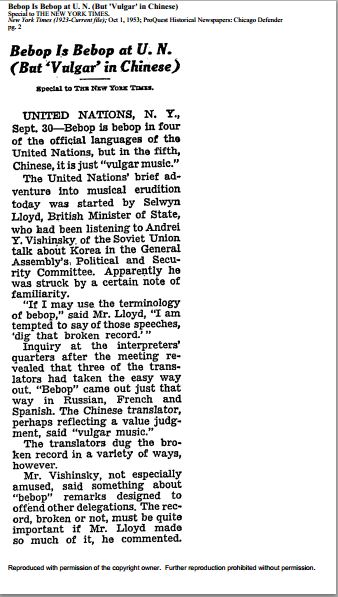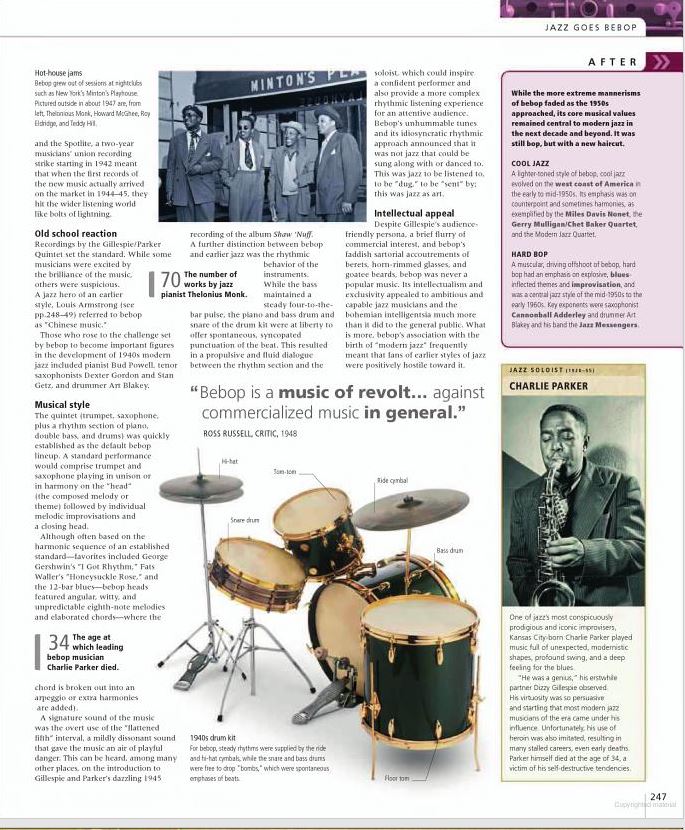Bebop was a jazz form birthed from a revolt against popularized commercial music. As such, it was bound to have backlash and evoke strong reactions among the listeners. While researching this topic, I didn’t expect to find what I did: throughout decades of this music being around, the reactions have been somewhat… racist. And the racist remarks coincidentally point to the Chinese. See for yourself, as the article below shows a conversation at the U.N. which was published in the New York Times October of 1953.
This article aims to point out the bias of the Chinese interpreter at the U.N. discussion. As the English representative used the work “bepop” which was a cognate in 4 of the 5 languages present. However, the Chinese interpreter translated “bepop” to “vulgar music.” So why is this strange? Well on the front page regarding Bepop in the book Music in the Modern Age, there’s a quotation from Louis Armstrong as he disparagingly referred to Bepop as “Chinese music.” This is pretty funny, isn’t it? After all, the Chinese representative would probably disagree with Louis, unless he thinks Chinese music is vulgar.
A modern band today known as The Far Eastside Band even includes this quotation in their liner notes, calling out Louis on his lack of knowledge on the subject. They Proclaim something that Armstrong would never imagine: how American jazz could integrate the American greats like Cecil Taylor and Ornette Coleman with Asian instrumentation and improvisation. Those liner notes can be found here and they introduce their new album “Caverns.”
So why did I decide to write my post about this? I think the article really struck me and resonated when reading Armstrong’s quotation because this is not the first time in history it has happened. We have associated Eastern music with something that is different and, often, strange. Bepop was a strange form of jazz, and it was easy for listeners to describe it as Chinese with a negative connotation, labeling it strange and foreign, and perhaps unpleasant to listen to. Unfortunately, this trend has not disappeared, as film scorers often use pentatonic scales to invoke the environment of Eastern lands or foreign places, tying down that scale to just that one location. Even the soundtrack of Bug’s Life is ridden with this, and it won many music awards. I just think we as viewers and listeners need to be conscious of how we associate certain sounds with certain cultures, being careful to see music as an open connection where cultures and individuals can influence one another, not a stagnant and reliable sound to be scrutinized.


